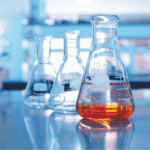Contents by Eurofins SL&TH Regulatory Services Team
Sustainability, circular economy and environment
Europe
One step closer for ecodesign requirements for consumer products
On 22 May 2023, the European Council adopted its position on ecodesign requirements for sustainable products.
The Council position clarifies how member state experts and industry should be involved in the future development of ecodesign requirements and the criteria and aspects that should be considered before ecodesign requirements are developed.
The new Ecodesign for Sustainable Products Regulation (ESPR) will be applicable to almost all categories of products and establish harmonised requirements for specific product groups, such as recycled content, presence of substances that inhibit circularity, etc… The aim is to make products more durable, reliable, reusable, upgradable, reparable, recyclable, easier to maintain, and more energy- and resource-efficient.
The proposal will also establish a “Digital Product Passport” which will provide information about a products’ environmental sustainability, including its carbon and environmental footprints, durability, reusability, upgradability, reparability, etc. Other interesting points in this new proposal are provisions on transparency, the prevention of destruction of unsold consumer products, and green public procurement.
The new regulation will replace the current Ecodesign Directive 2009/125/EC, enlarging the scope to cover almost all kinds of goods placed on the EU market; only exempting food, feed, medicine and veterinary products and motor vehicles.
As regards textiles, the proposal introduces a ban on the destruction of textiles, footwear and apparel, with a four-year exemption for medium-sized companies, and a general exemption for small and micro companies.
Now the next step will be negotiations between the European Parliament and the Council, which will begin when the Parliament adopts its position.
For more information, consult the official publication here.
Sustainability, circular economy and environment
The table below summarises the most recent publications regarding the environment, circular economy and sustainability (non-exhaustive):
| Entity | Date | Publication |
| French Ministry of Ecological Transition and Territorial Cohesion | 27/04/2023 | End of disposable tableware in fast food restaurants: brands have made a good start in bringing their restaurants into compliance, and controls will be strengthened to monitor compliance with their action plans
On January 1, 2023, France became the first country in Europe to ban disposable tableware for on-site catering. This progress report validates the working method adopted by the ministers. |
| European Commission | 28/04/2023 | Mercury-added products – EU ban on export, import and manufacture
This European-published initiative will align EU legislation with the Minamata Convention on Mercury and help phase out the use of mercury in these products worldwide, thus offering further protection for the environment and human health. |
| European Commission | 02/05/2023 | Single-use plastic beverage bottles – EU rules for calculating, verifying and reporting on recycled plastic content
This European-published initiative will give legal clarity to Member States so they can properly implement EU rules on single-use plastics. This will help increase the use of recycled material in the EU economy and reduce plastic waste incineration and landfill. |
| BfR ( German Federal Institute of Risk Assessment) | 08/05/2023 | Many people are concerned about microplastics
In a poll about certain health and consumer topics, microplastics came in at the top of the list of concerns. In second place, antibiotic resistance is mentioned, and in third place residues of pesticides in food. Microplastics are also a topic of natural and social science research at the BfR. |
| European Commission | 12/05/2023 | Environmental Liability Directive (evaluation)
This European-published initiative will assess whether the directive is fit for purpose and any shortcomings it may have. It will also reflect on calls from the European Parliament and the European Court of Auditors to strengthen its application. |
| European Commission | 15/05/2023 | Circular economy – monitoring framework (revision)
This European-published initiative aims to cover better the production stage of the economic cycle and the links between circularity, climate neutrality and zero pollution, in line with the European Green Deal. |
| ANSES (French Agency for Food, Environmental and Occupational Health & Safety) | 17/05/2023 | ANSES calls for the adoption of a more protective definition for nanomaterials
ANSES recommends improving the current definition of nanomaterials by providing a broader definition, not only based on dimensional criteria, and regardless of the sector in which nanomaterials are used. The hazards posed by nanomaterials should be one point to consider when expanding the definition. |
PFOA amendment in POP European Regulation
On 28th April 2023, the European Commission published an amendment to the Regulation (EU) 2019/1021 on persistent organic pollutants (POP). The amendment is related to perfluorooctanoic acid (PFOA), its salts, and PFOA-related compounds.
The Commission Delegated Regulation (EU) 2023/866 of 24 February 2023 indicates the following several amendments in Annex I, Part A, the fourth column of the table, and entry ‘Perfluorooctanoic acid (PFOA), its salts and PFOA-related compounds’
- In point 3, the date of review and assessment by the Commission has been changed to, 25 August 2023, related to exemptions from control measures of a substance present as an unintentional trace contaminant.
- Point 4 has been replaced by the following text:‘4. For the purposes of this entry, Article 4(1), point (b), shall apply to concentrations of PFOA and its salts equal to or below 1 mg/kg (0,0001 % by weight) where they are present in polytetrafluoroethylene (PTFE) micro-powders produced by ionising irradiation or by thermal degradation as well as in mixtures and articles for industrial and professional uses containing PTFE micro-powders until 18 August 2023. All emissions of PFOA during the manufacture and use of PTFE micro-powders shall be avoided and, if not possible, reduced as far as possible. The limit of 1 mg/kg (0,0001 % by weight) shall apply only to the manufacture, placing on the market and use of PFOA and its salts where they are present in PTFE micro-powders that are transported or treated for the purpose to reduce the concentration of PFOA and its salts below the limit of 0,025 mg/kg (0,0000025 % by weight).’;
- In point 5, subpoint (e) has been deleted which allowed the manufacturing use of PFOA, its salts and related compounds for the manufacturing of polytetrafluoroethylene (PTFE) and polyvinylidene fluoride (PVDF) for the production of:
- High-performance, corrosion-resistant gas filter membranes, water filter membranes and membranes for medical textiles;
- Industrial waste heat exchanger equipment,
- Industrial sealants capable of preventing the leakage of volatile organic compounds and PM2.5 particulates;
until 4 July 2023.
This Regulation entered into force on 18th May 2023 and shall apply from 18 August 2023.
For more information, consult the official publication in the European Commission website here.
US
Oregon Prohibits PFAS in Food Containers
On May 16, 2023, the State of Oregon passed SB 543 to prohibit intentionally added perfluoroalkyl and polyfluoroalkyl substances (PFAS) in food containers. Additionally under the new law, food vendors may not use polystyrene foam containers in selling food to a consumer and the sale of polystyrene foam containers and polystyrene foam packaging peanuts is prohibited. The effective date of the prohibition is January 1, 2025.
SB 543 has the following definitions for the key terms:
A “Perfluoroalkyl or polyfluoroalkyl substance” is defined as a substance included in a class of fluorinated organic chemicals containing at least one fully fluorinated carbon atom.
A “Food vendor” is defined as a business organization or other person that sells prepared food or offers prepared food for sale to the public, including, but not limited to, a store, shop or other sales outlet, a restaurant, a delicatessen or a cart, truck or another vehicle from which the business, organization or other person sells prepared food or offers prepared food for sale.
A “Foodware container” includes bowls, plates, cups, lids, clamshells or other containers or any other items used for serving or containing prepared food, including takeout food and leftovers from partially consumed meals prepared by food vendors.
A “Polystyrene foam container” is defined as a cooler or foodware container that is made of a polystyrene plastic foam, made for the purpose of serving, containing, preserving or consuming prepared food, ordinarily used once before being discarded.
It does not include a cooler or other containers that are made of a polystyrene foam, that is intended for more than one use and that is enclosed by a solid shell, a tray or container used solely to store, ship or otherwise transport an ingredient or food product that is not prepared food, or polystyrene plastic material, other than polystyrene foam packaging peanuts, that is used solely for packing or protecting other items during storage, shipping or other transportation.
A “Polystyrene foam packaging peanuts” is defined as a loose fill material made of polystyrene foam used to protect items during shipping or other transportation.
Korea
Korea Amends Recycling Packaging Law
On March 28, 2023, an amendment to the Act on the Promotion of Saving and Recycling of Resources (APSRR) was promulgated. The APSRR previously required the Minister of Environment to establish criteria for the evaluation of the material, structure and recyclability of packaging material. Under the amendment, which will come to effect on March 29, 2024, color and weight were added as criteria for the evaluation of packaging material. The Minister of Environment therefore may soon include new color and weight standards set out in the ME Notice on Level Assessment Standards Regarding Recyclability.
Contact us or visit our service pages for assistance with the regulations in this update, including, but not limited to
- Per-and polufluoroalkyl substances (PFAS) testing services including Total Fluorine (TF) and Total Organic Fluorine (TOF) as an indicator of PFAS contamination
- Chemical testing
- Microplastic testing




